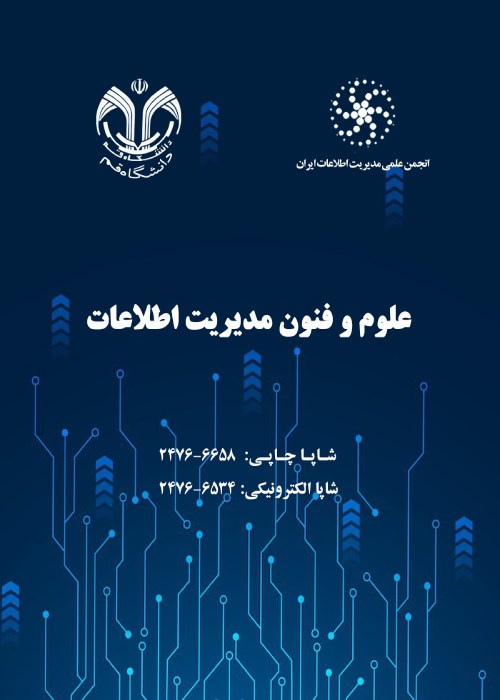Extraction and Classification of SmartUniversity Components to Provide a Conceptual Framework: A Meta-Synthesis Study
This research aims to extract and categorize the components of an intelligent university to provide a conceptual framework.
The current qualitative research was developed using a meta-composite strategy. Therefore, the specialized keywords of the research, Smart university, smart higher education, digital university, digital higher education in reliable scientific bases, Science Direct, Springer, Wiley Online Library, ERIC, Sage Journals, and Emerald were searched in the time frame (2010 - 2020). Among the 75 articles obtained, 25 made it to the final analysis. In order to achieve the goal of the research, three questions were designed: What are the main components in the conceptual framework of a smart university? What factors have caused the emergence of complex conditions and the emergence of a smart university? What are the underlying factors for establishing a smart university?
The findings in identifying the components of a smart university include: smart pedagogy (smart teaching, smart learning, smart assessment); Smart research (intelligence of research, capacity building of research), smart academic entrepreneurship (continuous interaction with industry, consulting and career services); Smart governance (good governance based on intelligentization, intelligent leadership of higher education); Smart modern management (smart management of higher education, smart management in universities); Smart campus (smart class, smart environment, green and smart sustainability of the campus, smart architecture in the campus); Smart technologies (technical-statistical, high-level technologies, smart rules and regulations); Smart capacity building (development of hard and technological infrastructure); Smart finance (mechanisms for providing and allocating financial resources, smart financial management) and smart human resources (smart faculty members, smart students, smart employees and smart human resources management). In response to the second question, three factors; cultural contexts (change in academic and extra-academic culture); motivational-attitudinal fields (motivational field, attitudinal field); competitive fields (intensification of competition inside and outside higher education), and dual factors; The proliferation of technological transformations (the development of non-educational technologies, the development of educational technologies), the emergence of biological changes (biological changes, academic changes) had an effect on the smart-university. Then, in addition to the theme network, the three-dimensional conceptual framework of the smart university is also drawn.
All in all, due to the developments in the fields of technology and the change in the structure and nature of past academic models, and the move towards smart universities, along with the occurrence of unknown events such as the Covid-19 epidemic, it has made it difficult to return to the past academic practices. However, in order to align with these developments, willingly or unwillingly, higher education systems have moved towards intelligentization for survival and activism in dynamic conditions. Based on the ten components identified in this research, higher education policymakers and university managers can formulate and implement strategies and programs for making universities smarter according to this component.
- حق عضویت دریافتی صرف حمایت از نشریات عضو و نگهداری، تکمیل و توسعه مگیران میشود.
- پرداخت حق اشتراک و دانلود مقالات اجازه بازنشر آن در سایر رسانههای چاپی و دیجیتال را به کاربر نمیدهد.



